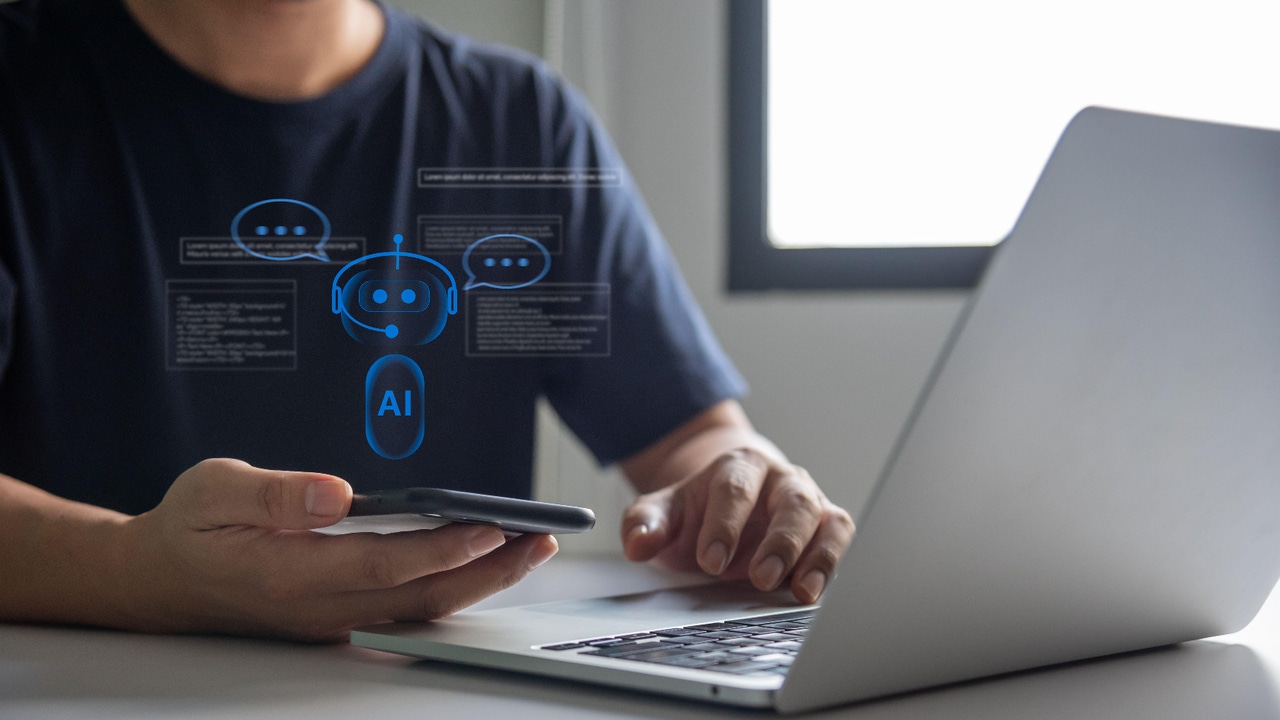Will AI Kill Google? Past Predictions of Doom Were Totally Wrong
Past technology revolutions made Google even stronger rather than weaker, as many tech dudes predicted. So what about AI?
November 25, 2024

Lots of smart people believe that artificial intelligence will upend how you find information. Googling is so yesterday.
Sam Altman, the top executive overseeing ChatGPT, has said that AI has a good shot at shoving aside Google search. Bill Gates predicted that emerging AI will do tasks like researching your ideal running shoes and automatically placing an order so you'll "never go to a search site again."
In defending itself from a judge's decision that it runs an illegal monopoly, Google says the company might be roadkill as AI and other new technologies change how you find information. (On Wednesday, the U.S. government asked the judge to overhaul Google to undo its monopoly.)
But predictions of Google's looming obsolescence have been wrong before, which calls for humility in fortune-telling our collective technology habits. We're devilishly unpredictable.
Come along on a trip back to when smart people believed that smartphone apps and social media would make Google less relevant. Those technology revolutions instead made searching with Google even bigger.
Maybe Google will be displaced this time by AI. It's also important to keep asking: What if that's wrong, too?
The Predicted Google Killers of Yore
When the iPhone, Facebook and Twitter were still fairly new, it was common to hear Silicon Valley insiders say that you'd start vacation planning by opening a travel app, not by searching Google for hotels in Maui.
"On a mobile device, search hasn't happened," Steve Jobs said in 2010.
Likewise, plenty of people believed that instead of Googling for digital cameras, you'd ask your trusted Facebook friends for their advice.
As one technology investor said in 2010, "For every second that people are on Facebook and for every ad that Facebook puts in front of their face, it is one less second they are on Google and one less ad that Google puts in front of their face."
It's true that today, plenty of you turn to TikTok videos, Reddit, Facebook, Rotten Tomatoes, Yelp and Amazon when you want to know something or are looking for products or advice.
What was totally wrong, though, was believing those expanded information sources would make you Google less or would bleed money from the company. Smartphones and social media made Google search stronger — not weaker.
In 2010, people typed billions of searches into Google. The company now says that figure is in the trillions of searches each year.
Google's websites in 2010 collected nearly $20 billion in advertising money, mostly from ads that appeared with your web searches. This year, the company is on track to bring in roughly $200 billion from ads on Google searches and a small hodgepodge of other things.
When your technology habits change, it's not always an either-or. Social media and smartphones changed how we get information and spend our time and money — and we Googled more, too.
Maybe AI Will Be Different (or Not)
The past 15 years were unique in ways that might be a bad predictor of our future. The number of people using the internet has exploded since 2010, and shifting from PCs to smartphones caused us to spend more time online. That meant lots of internet sites could gain without Google losing.
Google changed to adapt to your information habits, too.
The company's critics, and a federal judge, also say that Google broke the law to ward off threats from changing technology. (Google says it plans to appeal the ruling that it broke anti-monopoly laws. The company declined to comment beyond an online post.)
AI definitely could draw us away from Google in ways that smartphones and social media didn't. When you're planning a garden, an AI helper might guide you through where you want the flowers and fruit trees and hire help for you. No Googling necessary.
"People are increasingly turning to ChatGPT to find information from the web, including the latest news," Altman's company, OpenAI, said.
Maybe it's right to extrapolate from how people are starting to use AI today. Or maybe that's the mistake that Jobs made when he said no one was searching on iPhones. It wasn't wrong in 2010, but it was within a few years. Or what if AI upends how billions of us find information and we still keep on Googling?
"The notion that we can predict how these new technologies are going to evolve is silly," said David B. Yoffie, a Harvard Business School professor who has spent decades studying the technology industry.
Amit Mehta, the judge overseeing the Google monopoly case, formed his own view on AI moving us away from searching Google.
"AI may someday fundamentally alter search, but not anytime soon," he said.
— Shira Ovide, The Washington Post
About the Author
You May Also Like








.jpg?width=700&auto=webp&quality=80&disable=upscale)
